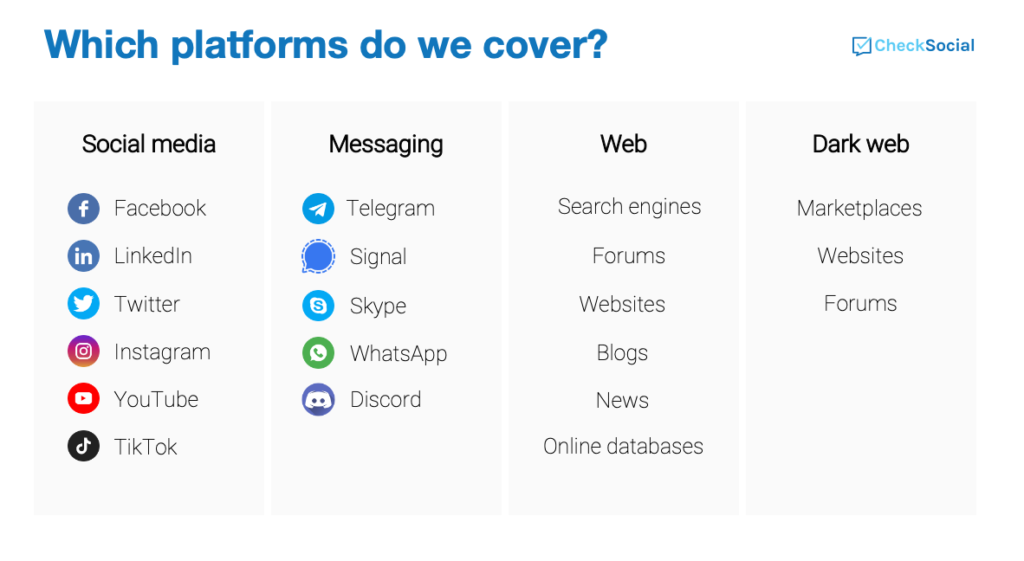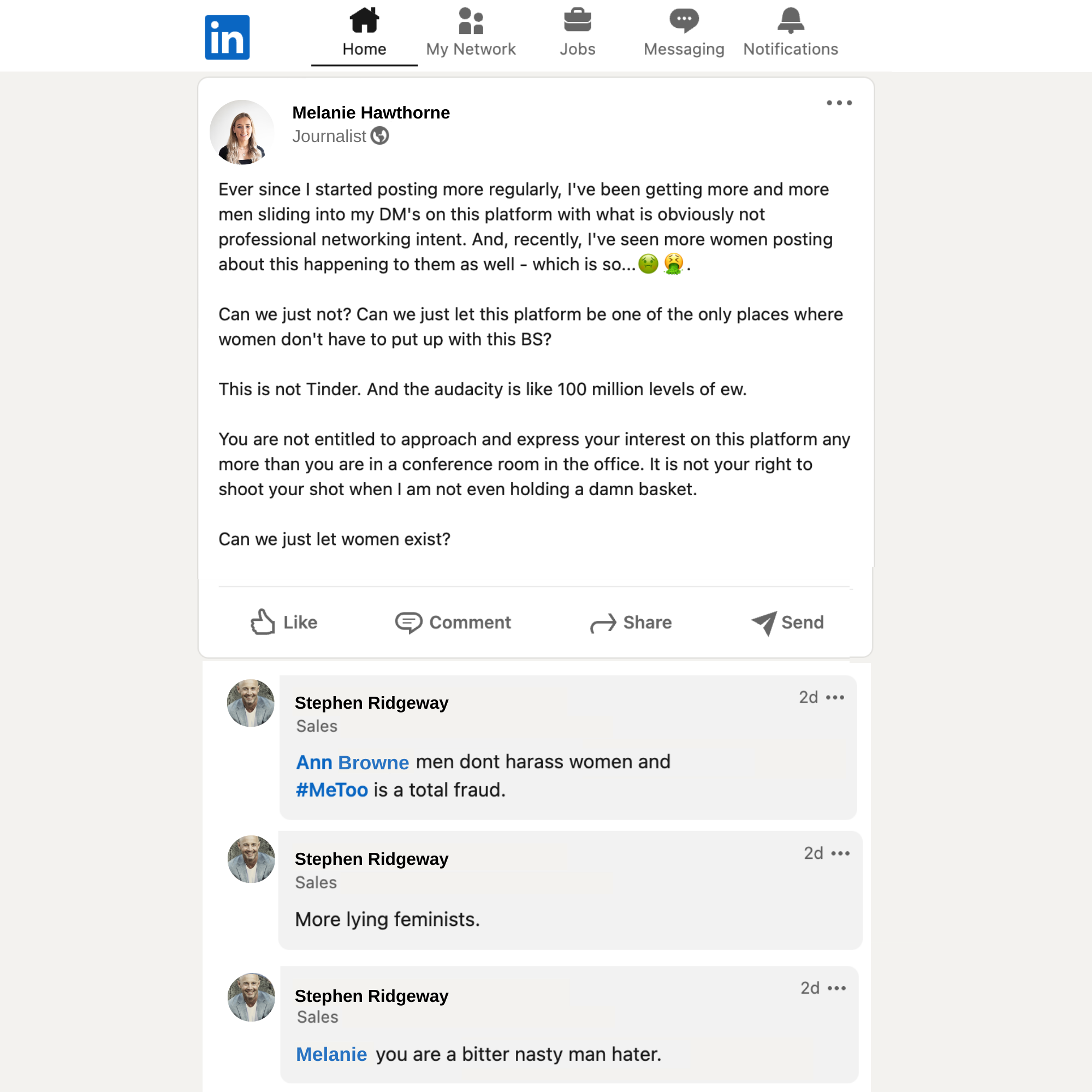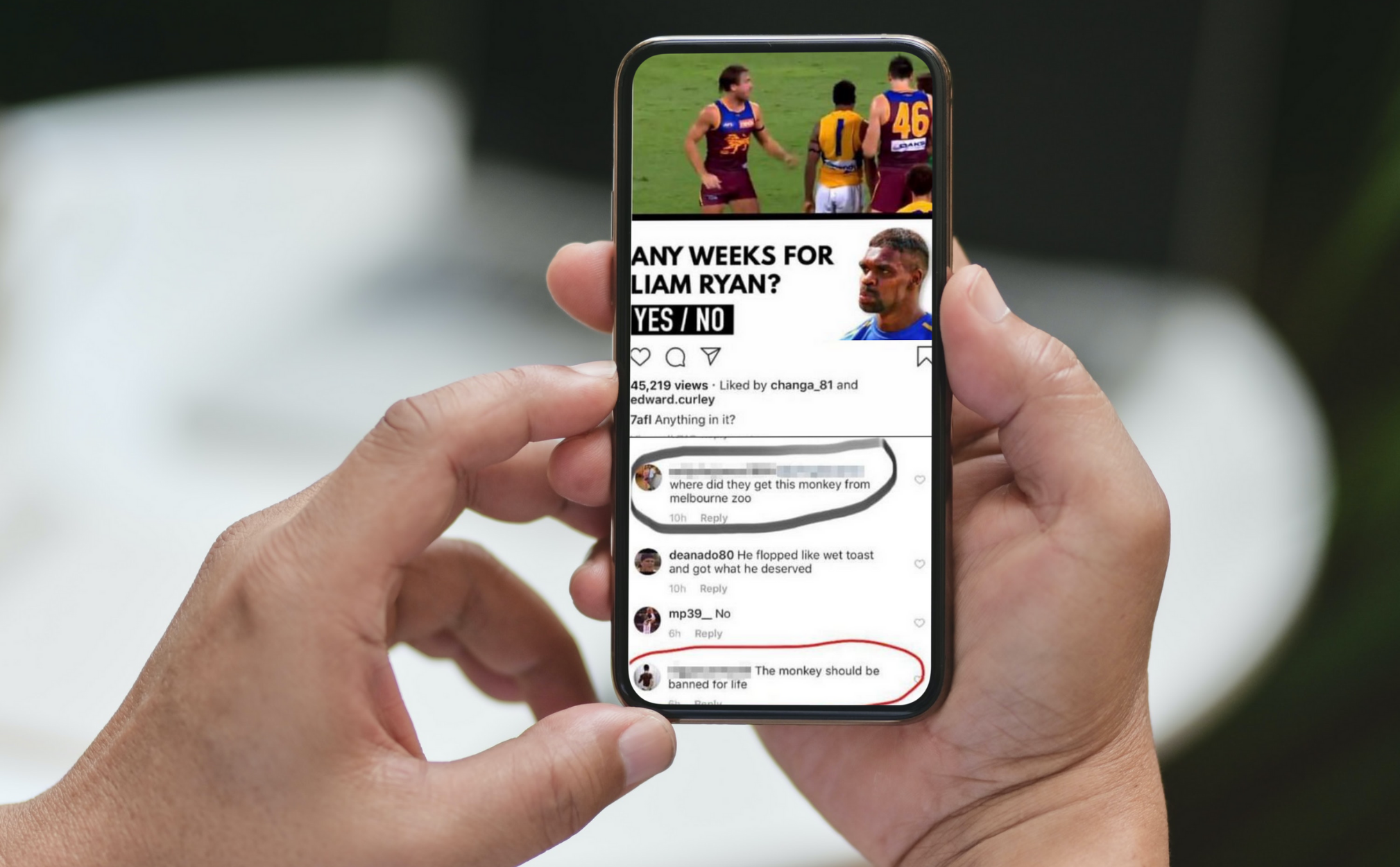Your candidates’ digital footprint is an online representation of who they are; their attitudes, interests, values and behaviours.
When used as part of your hiring process, digital footprint checks can provide your HR team with a more complete image of candidates and allow you to assess their alignment with your organisation’s culture and values.
Ultimately, they help protect your organisation from bad hires.
At CheckSocial, our digital footprint checks go far beyond social media screening. Our reports encompass a range of online sources and social channels to provide a deeper level of insight.
This blog breaks down how our checks work, what channels we cover and the types of content you can expect to see highlighted in our reports.
How digital footprint checks work
Our checks use a combination of powerful artificial intelligence and expert human analysis to provide you with a comprehensive report on your candidates’ online behaviours.
Once you implement digital footprint checks into your hiring process and have access to the CheckSocial platform you can start requesting and accessing reports.
Simply enter your candidates’ contact details and a link is sent to them to provide further details and consent for the check.
From there, our AI looks for red flags in their online activity and searches for undeclared accounts. When scanning each of these platforms, our AI has the ability to pick up on red flags that are unlikely to be found by the types of manual social media profile checks that are often done by employers.
Our team of expert analysts then review everything found by our AI and assign relevancy and risk ratings to give context to each finding, before providing you with your report.
It’s then over to your HR team to review your report and action any findings.
Discovering undeclared accounts
Our AI finds additional social media accounts that may be undeclared by candidates, by looking for profiles that use similar naming conventions and similar language to the candidate, as well as any accounts linked to their email addresses.
Our analysts review each discovered account and determine a relevancy rating to each one, which indicates their confidence that the accounts are owned by the candidate.
What red flags does the CheckSocial platform look for?
Our platform looks for any indication of your candidate engaging in behaviours that can provide insight into their potential alignment with your organisational values, culture and suitability for the role.
We use a group of three behaviours called ‘cultural fit indicators’, to find and highlight indications of:
- Discriminatory behaviour
- Unprofessional behaviour
- Criminal history and conduct
Not only do employees who engage in these behaviours pose a potential risk to your organisation’s reputation, but they are also not conducive to a safe, healthy and welcoming workplace.
What channels do our checks cover?
CheckSocial’s digital footprint checks provide insights from publicly available content online.
This includes channels such as social media platforms like:
- YouTube
- TikTok
Web results such as:
- Search engines
- Forums such as Reddit, Parler and Quora
- Websites
- Blogs
- News
- Online databases such as court records and regulatory databases (such as APRA and ASIC)
Messaging applications such as:
- Signal
- Telegram
- Discord
- Skype
The Dark Web:
- Marketplaces
- Websites
- Forums

The above list is not definitive but includes the channels most likely to be used by your candidates. If any other findings are found on other platforms not listed above, they will be included in our reports.
While social media platforms give users the ability to control their security and privacy settings, most people are unaware of how much of their activity is still publicly available.
Each of the above platforms offers different ways to gather insights. We have outlined what we can discover on the most popular platforms below.
1. Facebook
Facebook has flexible settings that allow its users to adjust the privacy of different aspects of their profiles such as images, posts and friend lists. While not everyone locks down the privacy of their content, those that do are often still engaging with public content.
Regardless of your candidate’s Facebook settings, our checks will pick up:
- Comments on public posts, for example, pages owned by brands, news channels, politicians, influencers and celebrities
- Reactions to public posts and comments, such as angry or laugh reactions
- Comments and reactions in public Facebook groups
- Interest or RSVPs to public event listings
- Tagged photos on the public profiles of the candidate’s friends
- Interests of the candidate based on page likes and group connections
- Education
- Professional experience
Additionally, any posts or photos that have not had privacy settings applied will be discoverable.

Facebook comments and reactions to public posts will be flagged in reports.
2. Instagram
Instagram allows users to choose between either a completely public or private profile.
Private profiles
If a candidate has set their profile to private their basic profile information, such as their profile picture, name, bio, website link, number of posts, follower and following numbers, still remains public.
Their personal privacy settings results in their own posts not being accessible, however Instagram is similar to Facebook, in that any comments made on other accounts’ public posts are publicly available to anyone.
So even with a private profile, any undesirable behaviours such as bullying or discriminatory comments will be discovered through digital footprint checks.
Public profiles
If a candidate has a public profile we will have full access to all aspects of their profile, including their:
- Basic profile information such as their profile picture, name, bio, website link, number of posts and follower/following numbers
- All of their posts, which are primarily made up of images
- Details of the accounts they follow
- Posts they are tagged in
- Comments on any public posts
- Likes on any public posts and comments
3. Twitter
Twitter also allows its users to choose between having public or protected tweets. Once again, any public tweets, replies and retweets with undesirable behaviours will be discovered.
While our checks do not access a candidate’s protected tweets, we can discover:
- Basic profile information such as their profile picture, name, bio, website link, number of tweets and follower/following numbers
- Any public @ replies to the candidate, which may indicate the content of their tweets
4. LinkedIn
LinkedIn allows their users flexible privacy settings with the ability to make any information other than their name, number of connections and location private.
Given the professional nature of LinkedIn and the fact that it’s the most trusted social network when it comes to privacy, users tend to have the majority of their information publicly available.
Digital footprint checks will include information on your candidates’:
- Qualifications and certifications
- Awards
- Education
- Professional experience
- Group membership
- Recommendations
- Content of public posts
- Comments and reactions on other people’s public posts

Problematic behaviours on LinkedIn will be flagged by digital footprint checks.
5. Other findings via search engines
Digital footprint checks go far beyond social media. Our AI scans all online platforms that are indexed by search engines. Any online mention of your candidate’s name will be found, whether on news stories, online forums or any other platform.
News stories
If your candidate’s name is mentioned in any news story online it will be discovered and, if relevant, highlighted in your report.
If the news article is behind a paywall, your report will provide the headline of the article and include any relevant content that is publicly available. As well as this, any public comments on online news stories will be discoverable.
Online forums
Similarly to news stories, any mentions of your candidate’s name on online forums such as Reddit, Quora or niche forums for different interests are discoverable.
As with social media, accounts for online forums that have been created using your candidate’s email address are also likely to be found.
6. Dark Web
While rare, our checks can discover if your candidate is openly discussing things on the Dark Web, or there is chatter about them. More often, we are able to find if any of their personal or sensitive details have been leaked.
If our report does include findings from the Dark Web, they will likely fall under our criminal behaviour cultural fit indicator.
Other inclusions and exclusions in our reports
While our reports outline any findings of discriminatory, unprofessional and criminal behaviours, we also include positive candidate insights, such as interests, to provide a holistic view of the candidate.
We also exclude some information about candidates to protect them from potential human bias and discrimination. This includes protected attributes such as race, religion and sexuality.
Actioning your digital footprint check reports
Our reports do not provide direct advice on whether a candidate is employable.
Rather, they flag any behaviour that indicates potential risks to your organisation’s brand, culture and reputation.
With digital footprint checks implemented into your hiring process, your HR team can assess candidates against your values, code of conduct and relevant policies. When used in conjunction with interviews and reference checks, they allow for a whole-of-person assessment to inform your hiring decisions.
After the report is reviewed, any findings can be raised with your candidates to discuss your concerns ahead of any potential employment.
Download a free sample report
To get an example of what a digital footprint check looks like, the information they include and types of content they flag, you can download a free sample report.
The 23-page sample includes:
- A Candidate Risk Score and Cultural Fit Assessment
- An outline of our cultural fit indicators
- Examples of content that indicate discriminatory, unprofessional and criminal behaviours
- Examples of other candidate insights

